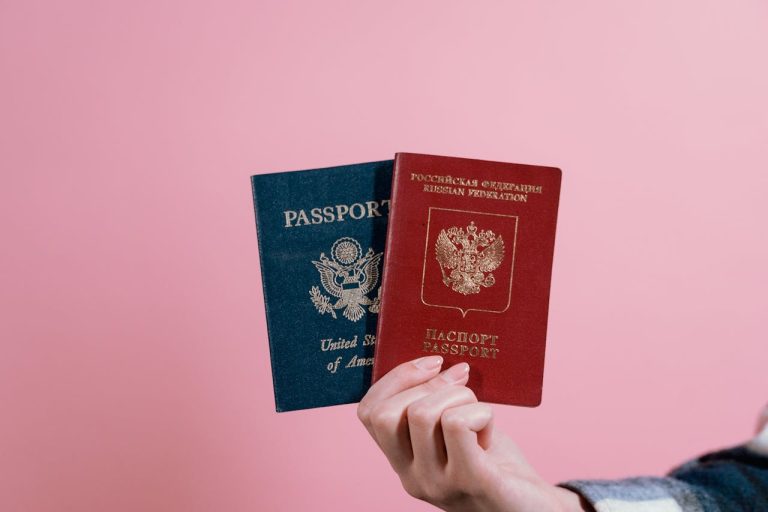In a rapidly globalizing world, where borders are becoming increasingly permeable, the notion of holding citizenship in more than one country has gained traction among individuals seeking diverse personal, professional, and economic opportunities. Dual citizenship and multiple citizenship are terms often used interchangeably, but they represent nuanced differences in legal status, obligations, and rights. While both involve the possession of citizenship in more than one nation, the distinction lies in the number of countries involved and the associated complexities.
This article will explore the intricate differences between dual and multiple citizenship, analyzing the legal frameworks, benefits, challenges, and real-world implications of each status.
What is Dual Citizenship?
Dual citizenship refers to the legal status of an individual being a citizen of two countries simultaneously. This means that a person can hold passports from both nations, enjoy the rights and privileges of both, and be subject to the laws and responsibilities of both nations.
How Dual Citizenship Works:
- Legal Recognition: Not all countries recognize dual citizenship. Some nations require citizens to renounce their original nationality upon obtaining a new one. Countries like the United States, Canada, and the United Kingdom allow dual citizenship, while others like Japan, China, and India either prohibit it or impose restrictions.
- Rights and Privileges: A dual citizen typically enjoys the benefits of both countries. This may include the right to vote, access to social services like healthcare and education, and the right to work without requiring a visa or work permit in both countries. However, these benefits can vary significantly between nations, depending on local laws.
- Obligations: Dual citizens are often subject to the laws and obligations of both countries. For example, they may be required to pay taxes in both nations or serve in the military if conscription exists. The legal implications of dual citizenship vary depending on the relationship between the two countries.
What is Multiple Citizenship?
Multiple citizenship (sometimes called “plural citizenship”) refers to an individual holding citizenship in more than two countries. It can be considered an expanded version of dual citizenship, where an individual enjoys rights, privileges, and obligations in multiple nations.
How Multiple Citizenship Works:
- Legal Framework: Similar to dual citizenship, multiple citizenship is subject to the laws of the involved countries. Some nations permit citizens to hold multiple citizenships without restriction, while others enforce limitations. The degree of complexity increases with the number of countries involved, as an individual must navigate the legal obligations of three or more nations.
- Rights and Privileges: A person with multiple citizenship can benefit from the rights and privileges of all the countries they hold citizenship in. This may include voting rights, freedom of movement, and the ability to live and work in each country without immigration barriers. Additionally, multiple passports may provide greater access to international travel, as some passports are more advantageous than others for visa-free entry.
- Obligations: Just like dual citizenship, individuals with multiple citizenships are subject to the obligations of all the countries where they hold citizenship. This can include tax liabilities, mandatory military service, or compliance with unique laws that apply to citizens.
Key Differences Between Dual Citizenship and Multiple Citizenship
While both dual and multiple citizenship involve holding citizenship in more than one country, several key differences set them apart:
1. Number of Countries:
- Dual citizenship refers specifically to holding citizenship in two countries.
- Multiple citizenship encompasses any number of countries beyond two.
2. Complexity of Obligations:
- Dual citizenship often involves balancing the legal obligations of two countries, which can be complex but manageable.
- Multiple citizenship adds another layer of complexity, as individuals must consider the obligations (such as taxes or military service) in three or more countries. Navigating these obligations can be challenging, especially if the countries have conflicting laws.
3. Impact on Legal Status and Rights:
- With dual citizenship, an individual can generally enjoy the rights and privileges of both countries, though some limitations may apply depending on the relationship between the two nations.
- With multiple citizenship, individuals may find themselves in situations where the laws of one country contradict the laws of another, making it more difficult to fully enjoy the benefits of all nations. For instance, one country may require military service, while another may have restrictions on dual nationals serving in foreign militaries.
4. Diplomatic Protection and Representation:
- Dual citizens may receive diplomatic protection from both countries while abroad. However, when in one of their home countries, they are typically only entitled to the protection of that country.
- For multiple citizens, diplomatic protection becomes more complicated, especially in countries that do not recognize multiple citizenship. Some countries may only offer protection based on the individual’s status as their citizen, disregarding the other nationalities.
5. Inheritance and Property Rights:
- In some countries, property ownership or inheritance laws are influenced by citizenship. Dual citizens may have more straightforward rights in both countries but might encounter difficulties if the laws of one country do not fully recognize dual nationality.
- Multiple citizens might face further complications, especially in countries with restrictive inheritance laws or property ownership rules. Some nations may not permit multiple citizens to own property or inherit assets under certain conditions.
Benefits of Dual Citizenship
The advantages of dual citizenship are wide-ranging, and they can provide individuals with significant opportunities and privileges:
- Access to More Than One Country: Dual citizens have the right to live, work, and travel freely in both countries. This offers increased flexibility and mobility for personal, professional, and educational opportunities.
- Economic Benefits: Having dual citizenship can open up access to economic opportunities, including investment options, business ownership, and employment without the need for a visa. It may also allow for better financial planning, including access to lower tax rates or favorable tax treaties.
- Cultural Enrichment: Dual citizens often enjoy a rich cultural experience, with the ability to participate in the customs, traditions, and heritage of both countries. This can be a profound benefit for those with family ties or ancestry in more than one country.
- Education Opportunities: Dual citizens may have access to public education systems in both countries, often at reduced or no cost. They may also qualify for scholarships, grants, or other financial aid that is only available to citizens.
- Political Participation: Dual citizens often have the right to vote in both countries, allowing them to participate in the democratic process and influence policies that affect their lives. They may also be eligible to hold public office, depending on the laws of the countries involved.
Challenges of Dual Citizenship
While dual citizenship offers numerous benefits, it also presents some challenges:
- Double Taxation: One of the most significant challenges is the potential for double taxation. Some countries, like the United States, tax their citizens on worldwide income, even if they reside in another country. Dual citizens may need to file tax returns in both countries and navigate complex tax treaties to avoid paying taxes twice on the same income.
- Military Service: In some countries, dual citizens may be required to fulfill military obligations. For example, countries like South Korea and Israel require military service from male citizens, regardless of whether they hold another nationality.
- Legal Conflicts: Dual citizens may find themselves subject to conflicting laws between the two countries. For instance, one country may require certain legal obligations (such as reporting foreign assets), while the other may impose restrictions on holding dual nationality.
- Diplomatic Issues: Dual citizens may face limitations on consular protection. When in one of their home countries, they may not be entitled to diplomatic protection from the other country. This can create challenges if the individual encounters legal issues or needs assistance while abroad.
Benefits of Multiple Citizenship
Multiple citizenship expands on the benefits of dual citizenship by offering access to even more countries. The advantages include:
- Enhanced Mobility: Holding multiple passports allows individuals to travel more freely, especially to countries that may have restrictive visa requirements. This can be particularly valuable for individuals whose professional or personal lives involve frequent international travel.
- Diverse Economic Opportunities: With multiple citizenship, individuals can access a wider range of economic benefits, including the ability to invest, own property, and establish businesses in more than two countries. This can provide greater financial flexibility and the potential for global tax planning.
- Access to Multiple Education Systems: Multiple citizenship can provide access to educational opportunities in several countries, allowing individuals to benefit from reduced tuition costs, scholarships, or grants. This is particularly beneficial for those pursuing international education or research opportunities.
- Political Influence: Multiple citizens may have the right to vote in several countries, giving them greater influence over the political systems that impact their lives. This can also extend to the ability to run for political office in multiple nations.
Challenges of Multiple Citizenship
The complexities of holding multiple citizenships can magnify the challenges faced by dual citizens:
- Conflicting Legal Obligations: Managing the legal obligations of more than two countries can be overwhelming. This includes navigating tax systems, fulfilling military service requirements, and adhering to laws that may conflict between countries.
- Lack of Diplomatic Protection: In countries that do not recognize multiple citizenship, individuals may find themselves without diplomatic protection in certain circumstances. Additionally, the diplomatic relationships between the countries involved can impact the level of protection provided.
- Travel Restrictions: While multiple passports can provide greater mobility, some countries may restrict entry for individuals holding certain nationalities. Additionally, countries in conflict may impose travel restrictions on citizens of nations they are at odds with.
Dual citizenship and multiple citizenship offer a unique blend of opportunities and challenges, each carrying distinct legal, political, and cultural implications. The decision to pursue either status requires careful consideration of the benefits and responsibilities associated with each country involved. For individuals seeking to maximize their personal, professional, and global opportunities, understanding the differences between dual and multiple citizenship is essential for making informed choices that align with their goals and values.









Leave a Comment